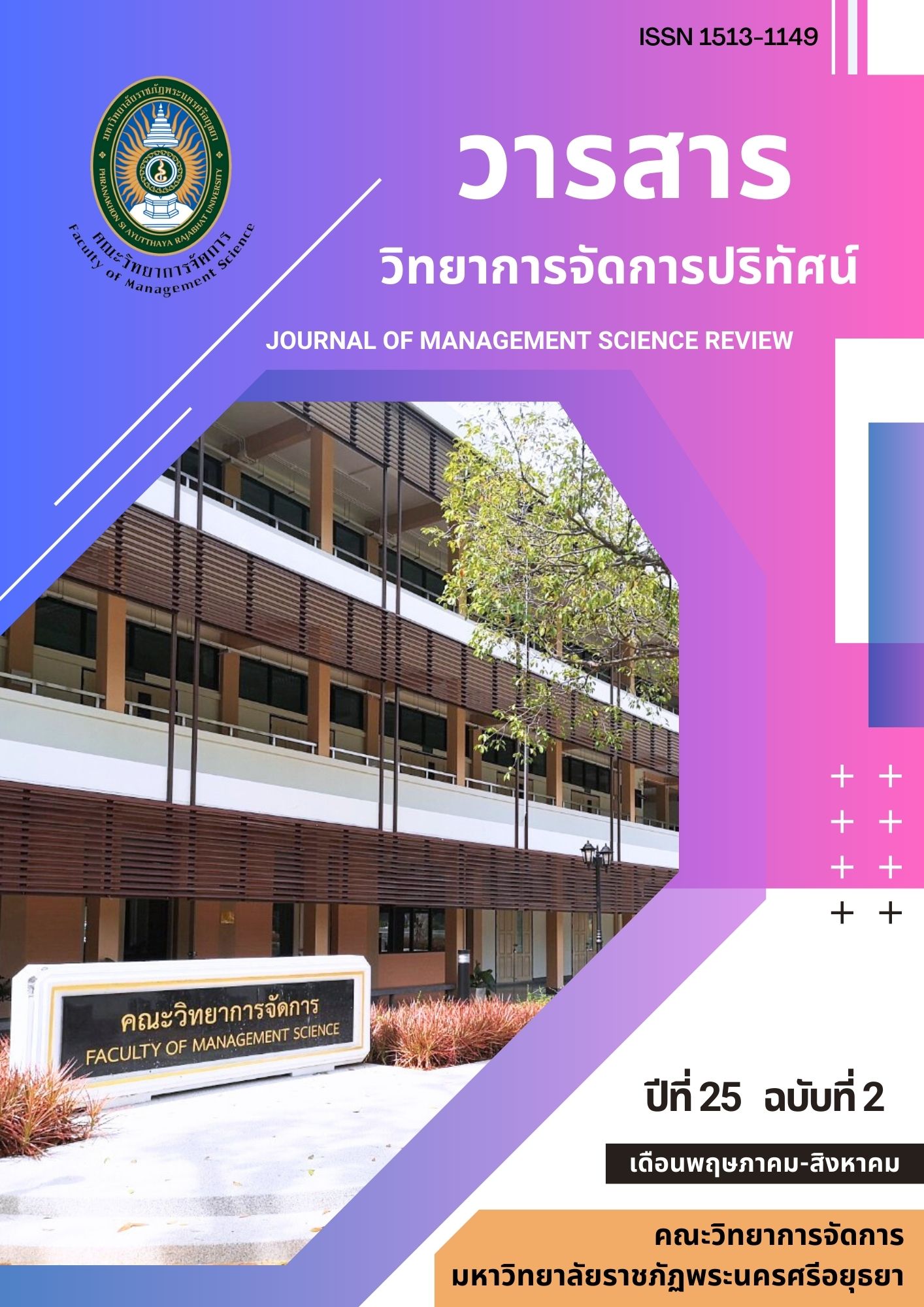Knowledge Management for Research on "In-Depth Research"
Keywords:
Knowledge Management, Research, In-Depth ResearchAbstract
One of the main missions of a higher education institute, apart from teaching and learning management, is to provide academic service and art and culture conservation. This includes research, which is a process of generating new knowledge and facts with a theoretical system. Relying on the rationale of carefulness, conciseness, detail, and reliability which were useful in academic, policy, commercial, teaching, and learning management, new knowledge creation, and new phenomena discoveries. However, to engage in research, lecturers must go through a research proposal process to get financial support. Thus, this has long been raising the question of how to choose a research topic that comes from inner contentment with efficient outcomes and be stress-free as they must go through this process every year. In this regard, the concept of “In-depth Research” is a working process in selecting a research problem or conducting research that is happy and effective as well as continuity. The significant work characteristics consisted of 2 steps as follows: 1) In-depth selection of research problems by seeking a balance between what one loves and proficiency, what helps solve social problems, and what meets the needs of the organization that supports research funding. 2) In-depth continuous research, which focuses on the working concept that leads to new research problems by researching continuous problems and/or expanding the scope of the research target group. in-depth” which emphasizes the working thinking base that leads to new research problems by researching ongoing problems and/or expanding the scope of the research target group.
References
จริยา ปันทวังกูร และกิตติศักดิ์ ดียา. (2563). การจัดการความรู้ในสถาบันอุดมศึกษา. วารสารวิชาการและวิจัย มหาวิทยาลัยภาคตะวันออกเฉียงเหนือ, 10(3), 289-303.
มหาวิทยาลัยราชภัฏนครราชสีมา. (2560). โมเดล กพร.การจัดการความรู้สำนักงานคณะกรรมการพัฒนาระบบราชการ (ก.พ.ร.). ค้นเมื่อ 1 เมษายน 2566, จาก https://kmced.blogspot.com/p/blog-page_29.html.
วรภัทร์ ภู่เจริญ. (2561). Ikigai ความหมายของการทำงาน. ค้นเมื่อ 1 เมษายน 2566, จาก https://shorturl.asia/I2Nhb.
สถาบันปรีดี พนมยงค์. (2565). เป้าหมายการพัฒนาที่ยั่งยืน. ค้นเมื่อ 1 เมษายน 2566, จาก https://pridi.or.th/th/content/2022/05/1081.
สถาบันเพิ่มผลผลิตแห่งชาติ. (2548). การจัดการความรู้จากทฤษฎีสู่การปฏิบัติ. กรุงเทพฯ: จิรวัฒน์เอ็กซ์เพรส.
สถาบันส่งเสริมการจัดการความรู้เพื่อสังคม. (2550). สังคมสุขสันต์มหัศจรรย์ KM. กรุงเทพฯ: เอส. อาร์. พริ้นติ้ง แมสโปรดักส์.
สำนักงานประกันคุณภาพ สำนักงานอธิการบดี มหาวิทยาลัยราชภัฏยะลา. (2564). คู่มือการประกันคุณภาพการศึกษาภายในมหาวิทยาลัยราชภัฏยะลา พ.ศ. 2562 ฉบับปรับปรุง พ.ศ. 2564. ยะลา : มหาวิทยาลัยราชภัฏยะลา.
อัปสร อีซอ. (2566). ผลงาน “แนวปฏิบัติที่ดี”คณะวิทยาการจัดการ มหาวิทยาลัยราชภัฏยะลา ประจำปีงบประมาณ พ.ศ. 2566. ค้นเมื่อ 1 เมษายน 2566, จาก
https://drive.google.com/file/d/1I1oqFHB_DH1NwBAZZKFM5TkgLvJRy3VV/view.
Elaine Elliott, M. (2022). The Growth Mindset Workbook. Oakland : New Harbinger Publications Inc.
Hislop, D., Bosua, R. & Helms, R. (2018). Knowledge Management in Organizations: A Critical Introduction. (4th ed). Oxford, NY: Oxford University Press.





